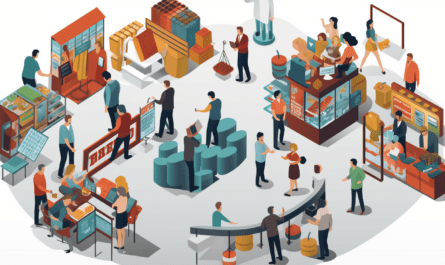Taxes account for a major share of Public finance. Unlike private finance, these are under the state which uses them for different purposes. There are three ways for government expenditure, one of them is by collecting taxes from people and others are by printing money (seigniorage) and debt financing. Different people have different perceptions of taxation. Some see it as a redistribution tool while others consider it a theft. But, who is correct?
Taxation as a Redistribution Tool
There are complaints from certain and quite a big share of people about income/wealth inequality. Though there have been many arguments against the market system, the one that gets the most attention is income inequality. So, due to social and political reasons income inequality has been a concern for economists and policymakers too who try different ways to deal with it. One way is taxation.
Firstly, a redistribution policy can be implemented in progressive taxation and secondly, the extracted taxes are given to the lower-income section of the economy in order to reduce the inequality of income. Now, this might sound amazing and also moral but it might not be.
There is person Z who has dreams and ambitions in his life, he works hard every day and is independent. On the other hand, there’s person X who is lazy and doesn’t like working much. So in order to reduce the inequality, is it justifiable to transfer Z’s hard-earned to X? Is it Z’s fault that X wasn’t working? The problem may seem to be about morality but is rather an incentive problem. One’s will to work is affected, who was contributing positively to the economy whereas the other person gets more at ease. This has been tried in many countries including India and we are yet to see income equality here.
Undoubtedly there has to be a great sum of amount taken away from the rich and given to the poor in order to make everyone equal. One might argue that a small amount of extraction wouldn’t affect them much and won’t cause incentive problems but if the state is taking away a large share of their income then that would affect the incentive of those in the upper decile of income class. At the same time, the incentive of those in the lower class will be affected as they wouldn’t find much need to work no matter whether they are transferring the resources directly or indirectly.
It’s true that there are many deprived of basic needs due to which they won’t be able to compete in the competitive environment to improve their conditions. In such cases providing these people with their basic needs would be a different case. This is because these basic needs will cost much lower and hence those belonging to upper-income class will have to sacrifice much lesser. This may have flaws but it has nothing to do with redistribution which is used as an excuse to charge high taxes.
Taxation as a theft
There is another belief that calls tax a theft. This argument is mostly from the libertarians who are against coercion and state that uses force toward their people to extract taxes. If a person disagrees to pay taxes then he can be jailed for that and a taxpayer shouldn’t expect anything in return for taxes, therefore these kinds of features make taxation a theft. It’s like a goon asking for money from an innocent person by putting a gun on his head.
The argument put forth here isn’t much wrong. But seeing it from the perspective of economics then economic theories are irrespective of morals or ideology, here we look for the best or most efficient system, and in some cases, there is a need for taxes, the wrong use of the system by some doesn’t justify the whole idea to be bad.
Taxation as Prices
If taxes aren’t at all a tool for redistribution and also not completely a theft, then what exactly is it? In this section, taxes would be exhibited as a type of price.
In an economy, there are two kinds of goods; private and public goods. Private goods are rivalrous and excludable, these goods aren’t shared amongst people but are used or consumed by those who paid for them. Market mechanism deals with such goods and hence the term prices are used for these goods to depict their value
On the other hand, there are public goods too that are non-excludable and non-rivalrous. The benefits of these goods aren’t particularly experienced by a small set of people in a region but rather by all. The market mechanisms cannot allocate these goods efficiently unlike in other cases and probably can cause market failures too. If one buys these kinds of goods, then others would enjoy them too leading to the free rider problem.
But, the cost of these public good need to be covered too. For that there is a need for taxes, as people enjoy these goods they need to pay for them too fairly and they do in the form of taxes. Thus taxes act as the price of public goods and services. This is the primary function of taxes which is generally ignored. Saying people shouldn’t expect anything in return for taxes will definitely lose their hopes in the tax system.
Knut Wicksell and Erik Lindahl asked to charge taxes from people in accordance with their marginal benefit from the public good which can differ. Some might benefit more from a public good than others and hence the taxes are to charge in such a way as to reach the “Samuelson Optimality condition”. There are prominent free market thinkers too like F.A. Hayek, Milton Friedman, James M. Buchanan, and even Ludwig von Mises who believed in public goods.
Conclusion
It isn’t right to force one to pay for a good where he gets no utility. Though it cannot be denied that taxes are extracted through the medium of force a real-world solution to some problems cannot be left at an individual level whether it be Law, Military, or Air. This is why to all problems in social sciences, the perception of economics turns out to be the best as they are scientific and unbiased. Irrespective of morals, emotions, and ideology, what needs to be implemented and followed is what turns out to be the most realistic and efficient option. Otherwise, arguments based on morality are endless as what can be moral for one could be immoral for others.



